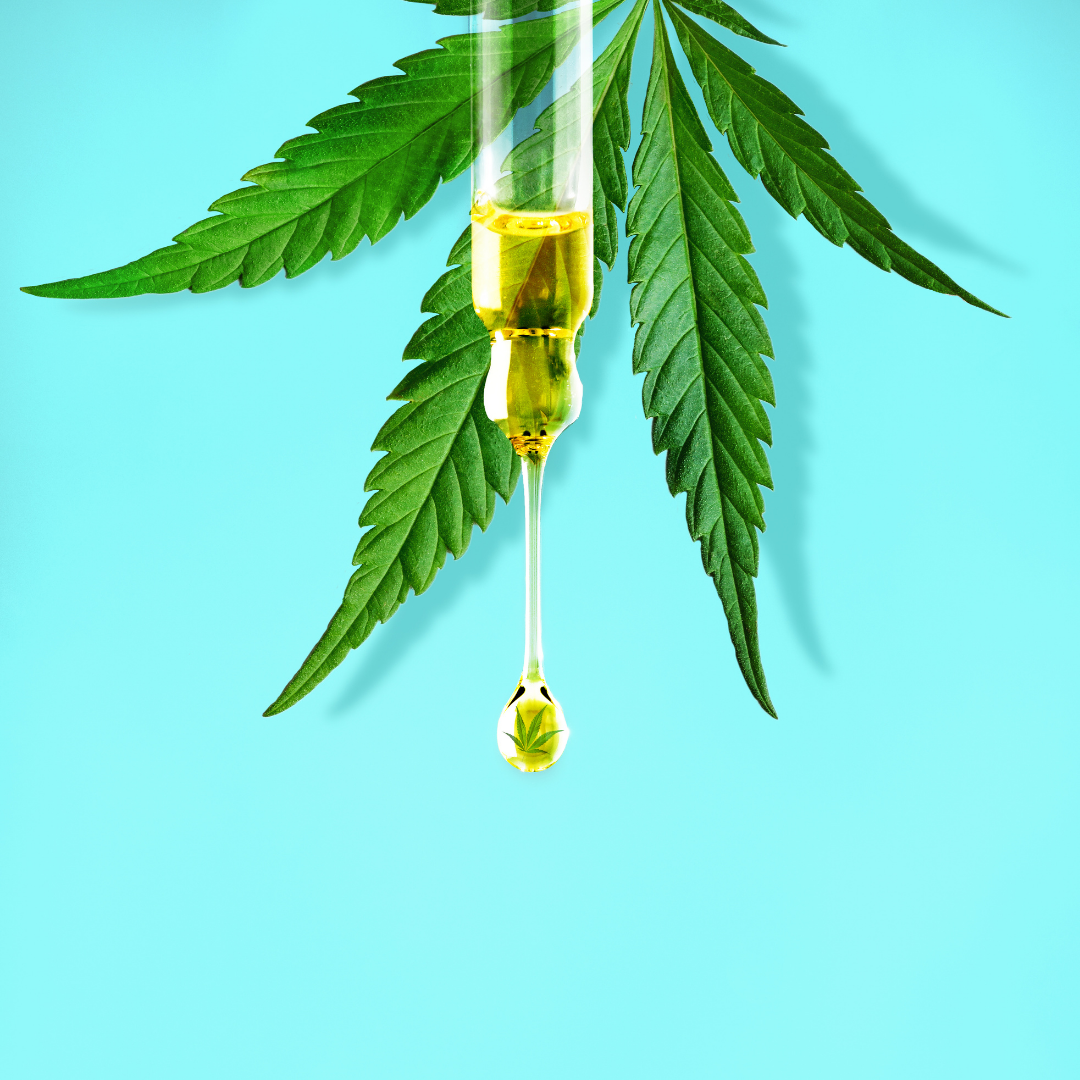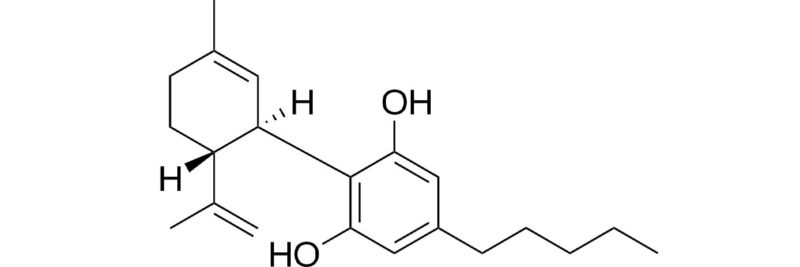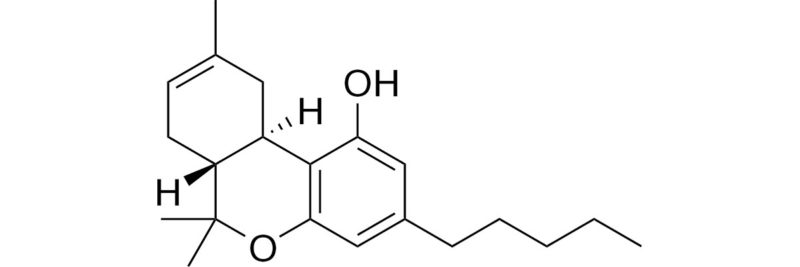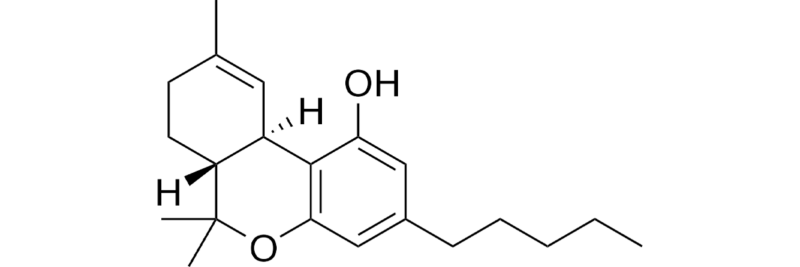
What is Delta-8?
DELTA-8 THC
Delta 8 THC, or tetrahydrocannabinol, is a naturally occurring cannabinoid in cannabis (hemp and marijuana) and is commonly abbreviated as Delta 8 THC, Δ8THC, Δ8, D8, D8 THC, and D8THC. It’s an isomer of both cannabidiol (“CBD”) and Delta 9 tetrahydrocannabinol (“D9THC”), sharing a chemical formula of C21H30O2 and a molar mass of 314.464 g/mol.
It exists naturally and can also be produced by converting CBD or Delta 9 THC via a chemical reaction typically using heat, catalysts, altered pH environments, and/or solvents.



Delta 8 THC is an extremely viscous oil and exists in an “activated” state similar to Delta 9 THC, meaning it does not need to be decarboxylated to feel its effects.
Delta 8 THC is an extremely important cannabinoid specifically due to its ability to serve as a more functional substitute for Delta 9 THC.
Delta 9 THC has a fair amount of negative side effects: addiction, sleep issues, paranoia, anxiety, laziness, etc. However, Delta 8 THC seems to have none, or at least far less severe side effects in comparison. This is an enormous benefit for the many individuals who we are helped medicinally by Delta 9 THC, but do not enjoy the side effects.
And what may be the most medicinally and societally beneficial feature of all is Delta 8 THC may have incredibly reduced chance of addiction, as well as a built-in protection against abuse. Those who consume excessive amounts of D8 THC can build a tolerance to the mental “high” very quickly. So individuals wanting to consume D8 THC consistently in a recreational manner are forced to do so responsibly. This effect doubles as a benefit for those who use THC medicinally daily and need to be functional as they may be able to completely remove the “high” feeling altogether while still getting the relief they need.
While it is still early, from a medicinal standpoint, Delta 8 THC seems handidly surpass both CBD and Delta 9 THC combined. As shown in the video above, the effects can be both lifechanging and lifesaving. In the years we have been a part of the cannabis community, we have never seen anything come even remotely close to receiving the same amount of positive reviews.
Delta 8 THC was made legal by H.R. 2: The Agricultural Improvement Act of 2018, commonly referred to as the 2018 Farm Bill. It was specifically made legal when hemp allowed for all derivatives, isomers, and cannabinoids of hemp that were not Delta 9 THC.
Up to that point, D8 THC had been illegal and was specifically named in the Controlled Substances Act. However, in addition to making all hemp cannabinoids, isomers, and derivatives legal, H.R. 2 specifically includes text to remove all confusion between laws by amending the Controlled Substances Act to exclude Delta 8 THC from hemp.
Delta 8 THC is federally legal and legal in most states, but it is not legal in all states. D8 THC is legal in most states that have hemp laws mirroring H.R. 2, however not all states do this. Some states specifically exclude D8 THC or have laws that do not specifically make all cannabinoids, isomers, and derivatives of hemp legal, creating a grey area for the compound.
Delta 8 THC exists naturally in cannabis (hemp & marijuana), but in such small quantities that it cannot be extracted and put into products at prices many people can afford. Luckily, one of the great things about cannabinoids is how closely many of them are structurally.
These structural similarities allow cannabinoids to be changed from one to another fairly simply via chemical reactions. While many people want to call these cannabinoids “synthetics” that’s not an appropriate name for them. “Conversions” or “derivatives” is the more appropriate name, as not only do these compounds exist naturally, but many of these cannabinoids will change into each other naturally with the application of heat, time, and light. In fact, all cannabinoids start as CBGA and naturally synthesize into other cannabinoids during the maturation of the cannabis plant. And a conversion of THCA to Delta 9 THC with the application of heat is a conversion performed at home by anyone who smokes marijuana.
This is all to tell you that conversions are an integral part of the cannabis industry and should not be feared in a general sense.
These reactions are done to create other rare cannabinoids like cannabichromene (CBC), cannabinol (CBN), Delta 8 THC, and can even be done to create abundant cannabinoids like Delta 9 THC more cheaply than straightforward extraction.
However, because D8 THC is created in a lab there does need to be some concern over the safety of the extract. Mainly that it is being created safely with all solvents, reagents, and acids or bases being properly removed from the end product.
The effects of Delta 8 THC vary per person, but the average experience could best be explained by imagining combining the best parts of CBD and Delta 9 THC. It is relaxing, mood-boosting, pleasantly euphoric yet clearheaded and not overwhelmingly intoxicating. It’s motivating/energizing to some, especially at lower doses, and sleep-inducing to others, especially at higher doses.
With appropriate dosing, users report feeling far more functional and active on Delta 8 THC versus Delta 9 THC. D8 THC also appears to be more medicinal than both CBD and Delta 9 THC.
If vaporized and inhaled the effects of Delta 8 THC appear within 20 minutes and can last as long as 5 hours with peak effects typically starting to decrease after 30 minutes to 2.5 hours depending on the individual. The higher the purity of D8 THC and the fewer cannabinoids like CBD and CBG, the quicker the onset and higher the intensity of effects.
If consumed orally, Delta 8 THC can take anywhere between 45 minutes and 4 hours to peak, with effects lasting as long as 12 hours. This is much longer than typically observed with Delta 9 THC and has the potential to be exceptional and convenient as a cannabis treatment with the possibility of as little as 2 doses being necessary for a full 24 hour treatment.
The lack or reduction of “mental fogginess” and paranoia is also a unique and beneficial trait of D8 THC as it allows many users the ability to take it while still accomplishing daily tasks.
Negative effects can include drowsiness, upset stomach, dry mouth, red eyes, and headache.
Delta 8 THC effects vary depending on the method of consumption but typically are delayed slightly more than Delta 9 THC effects. Purity and the presence of other compounds seem to play a role as well.
Our observations have shown that a pure Delta 8 THC vape can be felt immediately or within a few minutes, whereas a D8 THC oil with a presence of 20% or more CBD can delay the noticed onset of effects by as much as 20 minutes.
When eating Delta 8 THC, a user may not see peak effects for anywhere between 1-4 hours, which is a little different than Delta 9 THC which may peak anywhere between 45 minutes and 2 hours.
Due to the delayed onset of Delta 8 THC, a user may need a few uses or days to find their perfect dose. Doses are highly individualized and don’t completely seem tied to any specific physical feature (age, sex, weight, etc) so, regardless of size, it’s best to start with a lower dose and work your way up. You can always take more, but you can’t untake Delta 8 THC.
A typical oral dose for Delta 8 THC is between 10-40 mg. Those that need above 40mg tend to be heavy recreational users of Delta 9 THC. 10 mg can make a big difference in effects for some people so we generally recommend to not exceed 10 mg’s when stepping up in dosage.
A typical vape dosage is 1-3 three second puffs. It is typically not necessary to take more than this unless the user is a heavy user of Delta 9 THC.
If you’re a consistent user of Delta 9 THC, we typically recommend starting with it in a 1:1 manner. Many report Delta 8 THC being about 75% as potent as Delta 9 THC, but we aren’t ready to concede that figure as the different effects between the molecules aren’t directly comparable. We’ve found that potency varies per person and the expectation for, and ultimate lack of, a mental fog when using D8 THC is the main reason people find Delta 9 THC to be less potent, disregarding it’s increased potency in calming anxieties and body feel for many. We’ve had individuals report D8 THC being more potent than Delta 9 THC, especially with edibles. For this reason, we typically recommend taking a similar dose to what you would take with Delta 9 THC and work your dose up or down based on that initial response.
The length of Delta 8 THC’s effects are very unique to the individual. As an average, we see high purity vapes lasting 1-5 hours and tinctures and edibles lasting 5-12 hours. Larger doses generally create longer lasting effects, especially with tinctures and edibles.
A difficulty of judging the length of effects is that Delta 8 THC has a fairly natural onset and come down, so that it is sometimes hard for an individual to truly grasp where their “baseline” is/was before and after taking D8 THC.
This is especially true for individuals who do not feel “high” from DTHC but just get a boost in mood. This mood change is sometimes unnoticeable to the individual themselves because of the natural onset and the user will think D8 THC had no effect. We’ve seen this many times in sampling sessions where the individual says they feel nothing, but someone they are with will then inform them how much more pleasant they’ve become in the last few minutes.
Another difficulty in judging the length of effects is that many reports are given based on the “peak” and thus disregards a substantial amount of time spent above baseline after the peak effects are felt. D8 THC effects do not peak and then disappear. There is a gradual phase-out of effects.
In general, the effects of vaporized D8 THC will be shorter than D8 THC that is eaten.
Due to Delta 8 THC needing to be created in a lab, the primary safety concern is that the lab procedures are performed correctly by a trained chemist.
In terms of safety with acute usage, there is no known deadly overdose limit with D8 THC. However, when eating D8 THC, consuming more than one’s individual needs can induce extreme paranoia and anxiety, just like Delta 9 THC edibles. Go easy on the edibles and work slowly up to find your proper dose.
Note that there is no long-term safety data for D8 THC.
There are no human studies on the tolerance of Delta 8 THC. However, our observations have shown it to be similar to Delta 9 THC as tolerance will build gradually over time and can be accelerated from overuse.
There have been some reports that tolerance to D8 THC builds more quickly than with Delta 9 THC, but these are almost always accompanied by admissions of the individuals using D8 THC quicker and more often than they did with Delta 9 THC. The primary reason users cite for this is the delayed onset of D8 THC in comparison to Delta 9 THC.
Whereas a user familiar with Delta 9 THC may use D8 THC and expect to “feel” something within a certain timeframe based on their past Delta 9 THC usage, D8 THC may take slightly longer to give that similar feel. This oftentimes results in individuals dosing themselves 1 or more times more thinking they “didn’t take enough”, creating a situation where a user doses more than necessary. In turn, the user then becomes tolerant to D8 THC at an accelerated rate.
Delta 8 THC is thought to have the same metabolites as Delta 9 THC except the double bond is changed when applicable. However, studies are not readily available with the exact metabolites. The only study even mentioning metabolites was done on mice.
Our initial observations suggest the metabolites of Delta 8 THC are longer lasting than Delta 9 THC metabolites when eaten and possibly stronger, too.
No, as Delta 8 THC’s metabolites are either that same or too similar to Delta 9 THC’s and will trigger a positive test for Delta 9 THC.
We tested this by using at home drug testing kits on 3Chi employees who only used D8 THC and sending one employee to the same lab our local police go to for their drug testing. All tests were positive for THC.
While we’ve heard of others passing while using D8 THC, we have not personally verified these reports, and our firsthand data suggest that’s, at best, not common.
To date, the longest test we have done on shelf life on Delta 8 THC oil potency is 4 months, and the oil came back testing better than it did the first time around. It was 95% D8THC when it was originally tested and 98% D8THC when tested at month 4.
However, this is within normal testing variance ranges and should not be taken to mean that D8 THC extracts become more potent over time. While we won’t say anything is impossible, it’s unlikely the oil actually became more concentrated with D8 THC. The more likely conclusion is that everything remained unchanged after 4 months and the test had a minor variance.
The oil was stored in individual syringes in clamshell packaging, at room temperature (~72F), and out of direct light (sunlight or artificial light).
In short, not very. Like almost every other cannabinoid besides Delta 9 THC and CBD, no long term studies have been done on Delta 8 THC for things like effects, proper dosing, safety, etc. While it is known to be a naturally occurring cannabinoid it is often found in very small quantities in flower and extracts (<0.1%). D8 THC products, however, may deliver D8 THC in up to 100% concentrations.
Delta 8 THC has been safely used in a handful of marijuana markets for a couple of years, but those products typically use D8 THC obtained via the isomerization of Delta 9 THC, not CBD. These are slightly different processes, and almost always contain a fair amount (5-50%) Delta 9 THC in addition to D8 THC. D8 THC derived from hemp must be done differently to remain “hemp” as the end product must contain <0.3% Delta 9 THC.
As of this writing, 3Chi has been selling D8 THC for almost a year. With the exception of our third-party lab tests, almost all of our data is anecdotal. While this feedback has been valid enough to help us make our products more effective, more controlled studies need to be done to definitively prove things.
We can say that the feedback on D8 THC is overwhelmingly positive. To put it in perspective, the positive feedback on D8 THC absolutely crushes the positive feedback we saw with CBD.
We can’t say that Delta 8 THC treats any specific condition, but we do have users tell us they are using it to treat conditions. Due to a large amount of positive feedback in these areas, we hope that studies will be done to potentially push D8 THC forward as a legitimate treatment for all types of pain relief, anxiety, depression, autism, brain disorders, nausea, appetite stimulation, and more.
It’s our initial observations that D8 THC has the medicinal potential to be several orders of magnitude more beneficial than CBD and Delta 9 THC. So it’s hoped that the medical and cannabis communities will rally hard behind this amazing new cannabinoid.